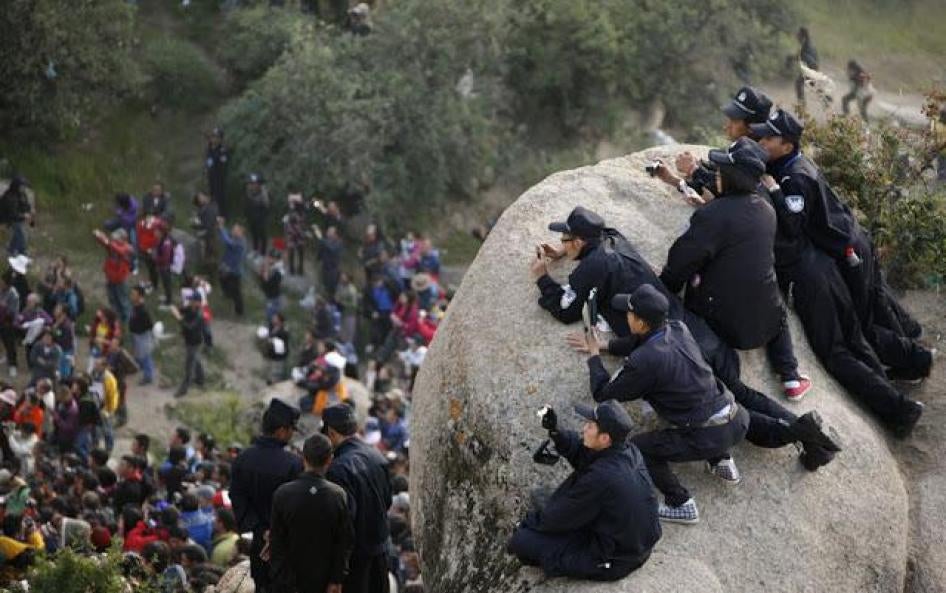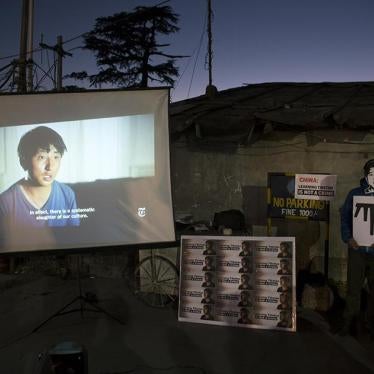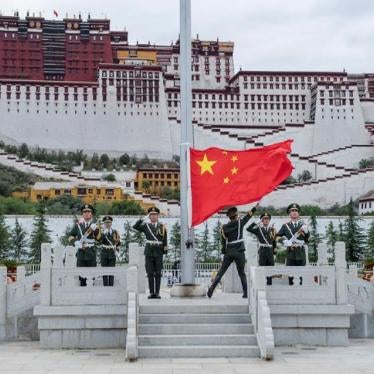(New York) – Chinese authorities are using an ostensible anti-mafia campaign to target suspected political dissidents and suppress civil society initiatives in Tibetan areas, Human Rights Watch said in a report released today. The authorities are now treating even traditional forms of social action, including local mediation of community or family disputes by lamas or other traditional authority figures, as illegal.
China’s Crackdown on Tibetan Social Groups
“Police and Chinese Communist Party cadres already had virtually unlimited power over the daily lives of Tibetans,” said Sophie Richardson, China director at Human Rights Watch. “But now authorities can prosecute people for simply gathering for any purpose not directly mandated or approved by the state.”
In February 2018, the Tibet Autonomous Region Public Security Bureau published a list of newly defined forms of “organized crime” in a circular – the first set of such prohibitions to be announced at the provincial level. The now-banned activities include any initiatives for the promotion of local language and culture, and protection of the local environment. The document deems those activities to be expressions of support for the exiled Tibetan spiritual leader, the Dalai Lama, and therefore subversive. Similarly, traditional forms of social organization, such as the mediation of community and family disputes and community welfare funds, are characterized as organized crime.
Beijing repeatedly claims that Tibetans have autonomy and their rights as an ethnic minority are respected, but the realities show only increasing repression of Tibetans’ daily lives and basic human rights.
China director
As a United Nations member state, China has affirmed acceptance of the Universal Declaration of Human Rights, which promotes the rights to freedom of association, peaceful assembly, expression, and to participate in the cultural life of the community. These new regulations are the latest evidence that China is systematically violating these rights in Tibetan areas, Human Rights Watch said. The Chinese government, Party officials, and state security forces should immediately end their unjustified interventions into the creation and conduct of independent social associations in Tibetan communities.
Concerned governments and UN bodies should publicly call on China’s leaders to reconcile the laws and policies restricting the rights to freedom of expression, peaceful assembly, and association with their claims to respect the rule of law. These concerns should also be expressed at China’s review under the International Convention on the Elimination of All Forms of Racial Discrimination at the UN in August 2018.
“Beijing repeatedly claims that Tibetans have autonomy and their rights as an ethnic minority are respected,” Richardson said. “But the realities show only increasing repression of Tibetans’ daily lives and basic human rights.”










